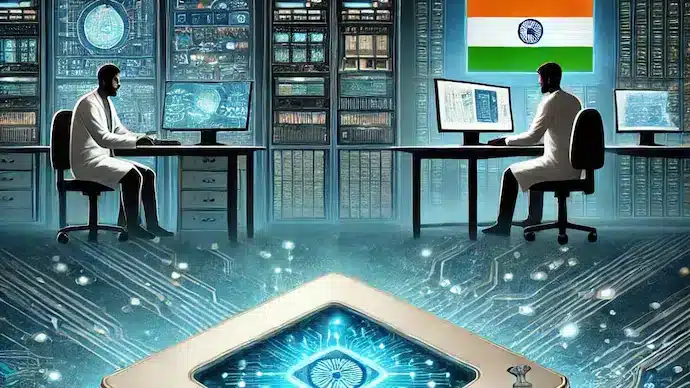India Advances in Space Technology with Indigenous Chip

The Indian Institute of Technology Madras (IIT Madras) and the Indian Space Research Organisation (ISRO) have achieved a significant milestone in the field of space technology. They have successfully developed and booted an aerospace-grade semiconductor chip named ‘IRIS’ (Indigenous RISCV Controller for Space Applications). This development is a crucial step towards enhancing self-reliance in India’s space endeavors. The IRIS chip is designed based on the SHAKTI processor and aims to support Internet of Things (IoT) and computing systems. This initiative aligns with India’s broader goal of reducing reliance on foreign semiconductor technology and strengthening indigenous capabilities in space applications.
Development and Testing of the IRIS Chip
The journey of the IRIS chip began with a collaboration between the ISRO Inertial Systems Unit (IISU) in Thiruvananthapuram and IIT Madras. Together, they defined the specifications and developed the chip. The design of the IRIS chip includes fault-tolerant internal memories, which enhance its reliability for space missions. Additionally, it features custom functional and peripheral interface modules, such as CORDIC, WATCHDOG Timers, and advanced serial buses.
Before the chip could be finalized, it underwent rigorous testing. Both software and hardware evaluations were conducted to ensure its suitability for the demanding conditions of space missions. This thorough testing process is vital for ensuring that the chip can withstand the harsh environment of space, where reliability is paramount. The successful booting of the IRIS chip marks a significant achievement in the development of indigenous technology for space applications.
Complete Indigenous Fabrication and Assembly
A key aspect of the IRIS chip’s development is that it was entirely fabricated and assembled within India. Professor V. Kamakoti, the Director of IIT Madras, emphasized that every step of the process, from chip design to software booting, was conducted domestically. This initiative is part of the ‘Digital India RISC-V’ (DIRV) program, which aims to promote the domestic development of microprocessor-based products that meet high security standards.
The complete indigenous fabrication and assembly of the IRIS chip not only showcases India’s technological capabilities but also reinforces the country’s commitment to self-reliance in critical technology sectors. By developing such advanced semiconductor technology locally, India can reduce its dependence on foreign suppliers and enhance its position in the global space technology landscape.
ISRO and Industry Support for Indigenous Innovation
The development of the IRIS chip has garnered support from various sectors, including ISRO and the semiconductor industry. ISRO Chairman Dr. V. Narayanan expressed his satisfaction with the progress made on the IRIS Controller. He highlighted its significance in advancing India’s ‘Make in India’ initiative, which encourages domestic manufacturing and innovation.
Kamaljeet Singh, the Director General of the Semiconductor Laboratory (SCL) in Chandigarh, also voiced his commitment to fostering collaboration between academia and startups. This collaboration is essential for advancing India’s self-reliance in niche semiconductor products. By working together, these entities can drive innovation and ensure that India remains at the forefront of semiconductor technology development.
Observer Voice is the one stop site for National, International news, Sports, Editor’s Choice, Art/culture contents, Quotes and much more. We also cover historical contents. Historical contents includes World History, Indian History, and what happened today. The website also covers Entertainment across the India and World.

